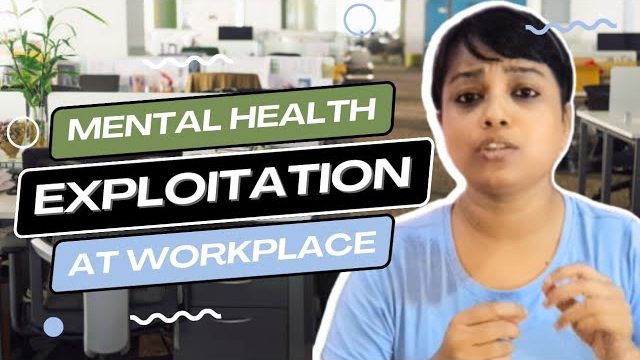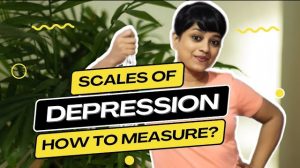No matter how much people talk about mental health, the hard truth is, companies don’t want people suffering from it for performance issues and other liabilities. You can’t point out how a company will very smartly eliminate you from the company by picking up some flaw or the other once you reveal to them your mental health condition. Read this article if you are looking for help after you are experiencing mental health exploitation at work and worried about job loss. Like, share and subscribe, watch till the end, and for those who are new, Hi, My name is Linda Ashok and you are watching MusterMynd.
So, let’s understand the challenges and then we will go to things you have to do to secure your life.
First, let’s understand The “Liability” Perspective. Some companies, especially those without robust HR practices or knowledge about mental health, might view employees with mental health issues as a potential liability. There’s a fear that they might require more medical leaves, accommodations, or even pose a potential legal risk should something go wrong. This archaic perspective can lead to indirect discriminatory practices to sideline or exclude the individual from significant projects or opportunities.
Second, Misinterpretation of Abilities. An employee with a disclosed mental health condition may find their skills and capabilities continually questioned. Any mistake or oversight they make, which would be considered regular human error for anyone else, might be attributed to their mental health condition, perpetuating a stereotype that they’re less competent.
Third, Reduced Growth Opportunities. Often, when an employee’s mental health condition becomes known, they may find themselves passed over for growth opportunities like training sessions, workshops, or challenging projects. The assumption might be that they wouldn’t be able to handle the pressure or that it might exacerbate their condition.
Fourth, Isolation from Team Dynamics. Sometimes, colleagues, in a misguided attempt to be considerate, might start excluding the individual from social interactions, informal team discussions, or decision-making processes. They might assume that the person would prefer to be left alone or might not handle certain situations well.
& Fifth: Performance Reviews Bias. An employee’s mental health condition can, unfortunately, become a focal point during evaluations. Even if they’ve been performing at par or even better than their colleagues, their condition can introduce bias, leading to potentially unfair appraisals or feedback.
Remember, despite having training, resources, and policies in place, you cannot be 100% confident that there won’t be any mental health exploitation at work, because companies need to make money and not do charity. It is a very hard truth but we must know how to accept this truth and the truth of our mental health. I have known many pregnant women who are subtly asked to put down temporary resignation and stuff. Basically, you can never be too sure about how things can backfire if your employer or colleagues and managers come to know about your mental health situation.
So, here are the things you must make a note of and of course share this video with every employee you care about because workplace violation of mental health is real. The media controls such information because of financial lawsuits. Anyway, that’s not your business. Your business is your wellbeing. So, do these as I share them with you.
No.1. if you are diagnosed with a mental health condition while you are working in a company, talk to your psychiatrist about your diagnosis and everything that you should know about the disease condition.
No. 2. Talk to your psychologist for coping mechanisms so that when things get out of hand at work or something you can’t cope with, you will have strategies to keep yourself out of any conflict at all and just stick to your work.
No. 3. Start journaling. If you hate to write, note in bullets, but do this. Document every interaction, promises made, broken, assignment delivery and all so that you have a timeline to fall back on if you ever have to justify a situation against you.
No. 4. Limit your interactions with colleagues, especially the fishy ones, don’t go out on smoke breaks or night outs for socialization. Have a healthy out of work engagement that you can use to excuse yourself from parties where shit happens.
No. 5. If you get involved in any altercation, just keep silent. Silence is dangerous and silence is therapeutic. Learn to dissociate from the heat of the moment because it is always likely that you can break down and that’s what they would want to ask you to leave.
No. 6. Never sign any document that makes you admit your apology for something that you haven’t done. It might sound easy to sign something to save your job, but tomorrow, you might neither have a job nor legal proof to fight charges against you.
No. 7. Seeking legal counsel is helpful but not practical. After 7-8 hours of work, you won’t have the bandwidth given your struggle with your mental health condition. And also, legal is expensive, and you are not prepared to fight your employer when you are unwell. So, keep your most trusted sibling or a parent who won’t panic informed about your situation.
No. 8. Get mentally prepared to lose/leave the job. Not that you have to because you have commitments, but take help of a psychologist to navigate your situation so that it doesn’t end on a traumatic note with your employer, ever. Work toward a 6-month emergency fund so that you have a financial backup.
& No. 9. Never slack at work. Deliver what you commit and again document it. Don’t take too much on your plate to impress anyone and don’t take your employment or relationships with your managers for granted. If things go against you, no one will stand up because everyone fears losing their job and they won’t do so because they are good to you or you are good to them. That’s the way it works! Let your work be your proof to your functioning despite your mental health.
That’s all. I wish I were as discerning in 2019 as I sound to you in this video hwil talking about mental health exploitation at work. I am 100% confident of my suggestions being helpful to you and so if you are in a situation, implement them. I will always be here to answer your queries. And before you leave, support me, subscribe to this channel and share this video with as many employees you know who are diagnosed with mental health conditions are unsure about how to navigate the situation.




